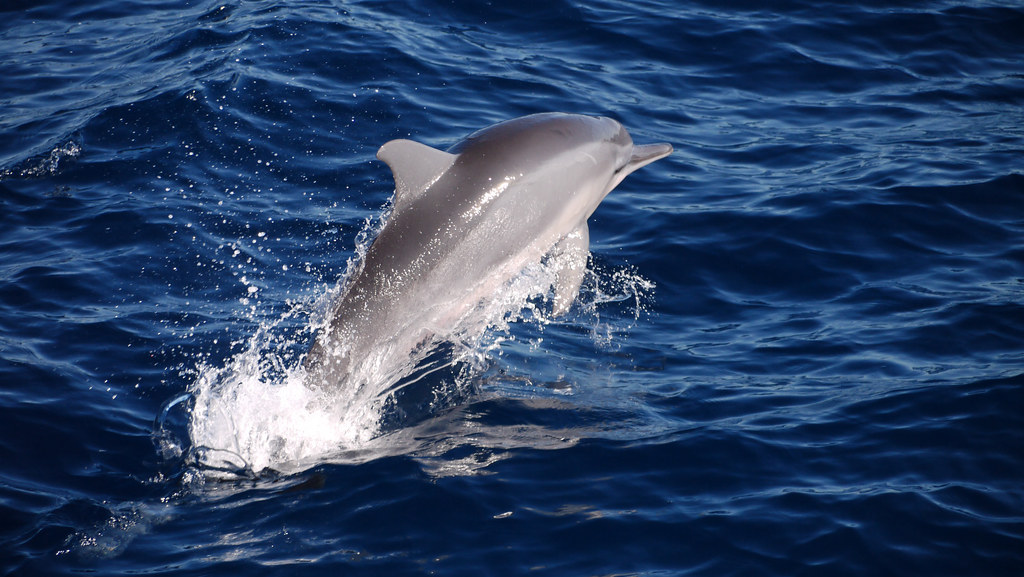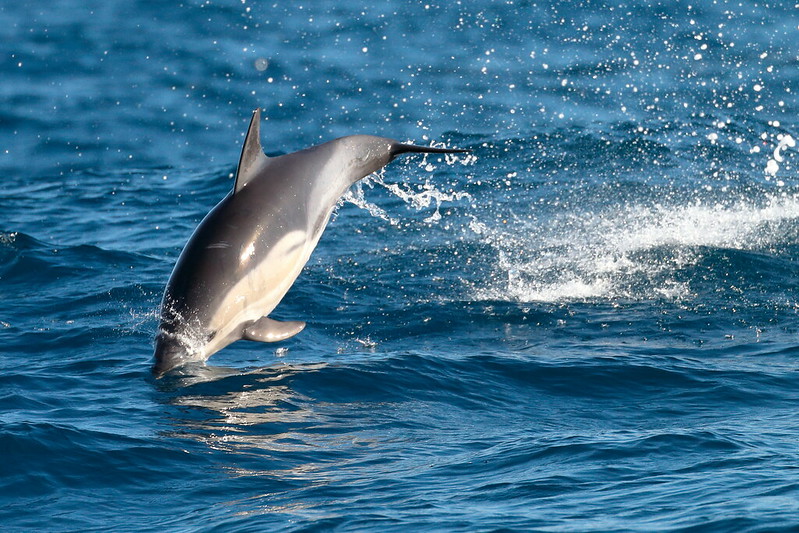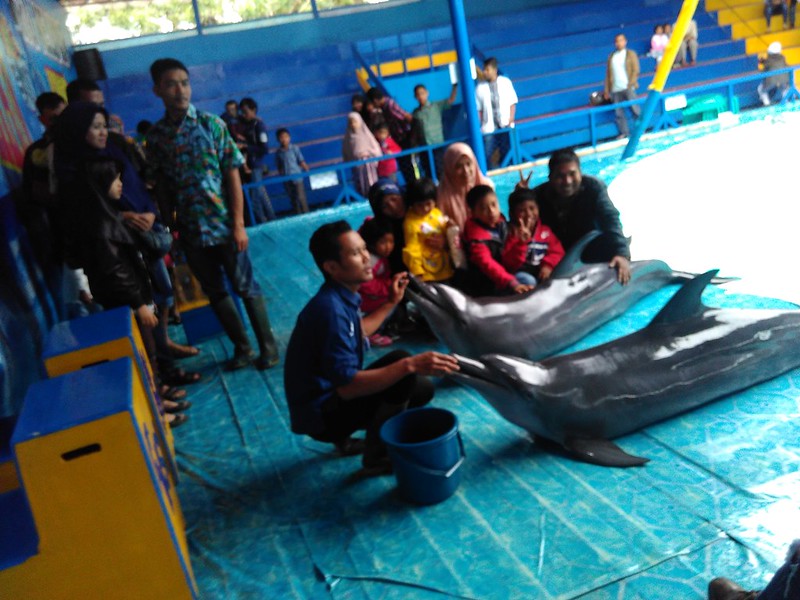Dolphin Day: Playful, social and intelligent – but at risk of extinction
24 June 2019
They live, play and communicate like us, but of the 43 known species of dolphin, 10 are at serious risk of extinction from human activity.
Dolphin society is open. Individuals are free to join and leave social groups at will but in practice strong social bonds between individuals can last a lifetime.
Calves typically stay with their mothers for between three to six years and may stay close to their mothers after they reach adulthood. Some females return to their mothers or female relatives to raise their own calves, comprising multigenerational groups.
Decades of behavioural research has revealed that dolphins have large, complex brains, capable of sophisticated behaviour. They demonstrate cultural transition, tool-use, individuality, consciousness, self-awareness, and they havea complex and flexible communication system, encompassing vocal, visual, and tactual signals.
Dolphins have excellent hearing and communicate using a wide variety of sounds including whistles and clicks. They use pulsed clicks in a similar way to how we use words, altering the volume and frequency to form individual "words" which are put together into “sentences”.
Bottlenose dolphins are also known to have individual signature whistles and they use these to identify each other in the same way that we use names. Recognising individuals plays an essential role in the behaviour of social species such as humans and dolphins.
Living in groups means that it is essential for individuals to be able to easily recognise their offspring, their mates, and discern friend from foe.
The ability to recognise individuals from sound alone is particularly important to dolphin mothers and calves, as they are almost always mobile and therefore must be able to stay in touch with each other through vocal communication.
Bottlenose dolphins are also capable of replicating the signature whistles of other dolphins and they use another dolphin’s call when they are separated from an individual and want to be reunited.
Through vocal signals, dolphins can “talk” to one another – maintaining social networks, family units and close bonds.
Under threat
Yet despite their undeniable intelligence, nearly a quarter of the world’s dolphin species are at serious risk of extinction.
The International Union for Conservation of Nature (IUCN), believes many riverine dolphin species, which have limited geographical distributions within highly polluted waterways, are at particular risk.
The Baiji or Chinese river dolphin, a species that inhabited only the Yangtze River in China, was known to be in gradual decline for decades, due to both pollution and bycatch. Yet little conservation measures were adopted and when a river inspection was carried out in 2006, the researchers did not find a single dolphin. The Baiji was declared to be functionally extinct, and although there may be some individuals left in the wild, the species will not be able to recover.
Another major threat to dolphin populations is the entertainment industry. Hundreds of young dolphins are ripped from their family groups in the wild every year to supply the world’s ocean parks.
Those that survive capture will be denied the ability to socialise and must adapt to an artificial diet and habitat, excessive noise and the proximity of people and unknown animals.
They will swim in chemically treated waters and be forced to perform meaningless tricks. Many suffer from the stress of confinement, often resulting in increased aggression, illness and premature death.
This is not the fate such amazing animals deserve.
Already, human activity has ended the unique evolutionary journey of the Baiji, snuffing out the diverse, complex social lives of thousands of individuals.
And if action is not taken, nine other species, including the Australian snubfin and Atlantic humpback, will likely follow in the near future.
It’s time to start caring about dolphins. Our development cannot be not made at the expense of their survival.
Animals Asia actively opposes the use of dolphins in travelling circuses in Indonesia. For these meaningless shows, dolphins are captured in the wild, kept in tiny pools and transported in planes. No animal deserves this. Sign the petition and tell Sriwijawa Air to end their complicity in animal cruelty.
BACK







